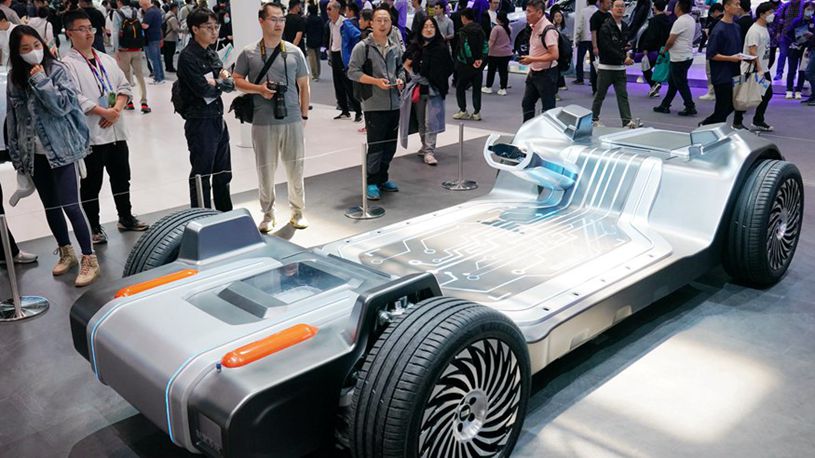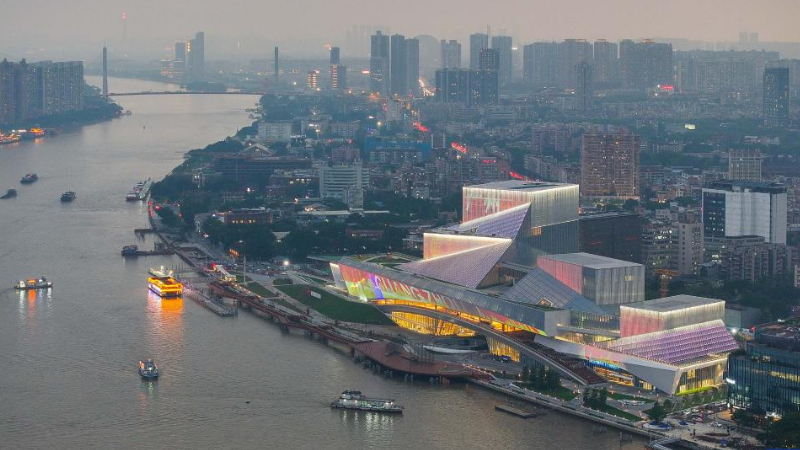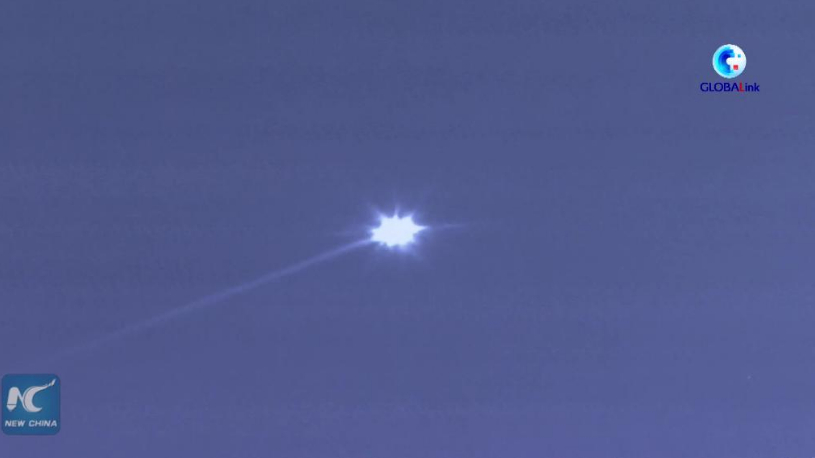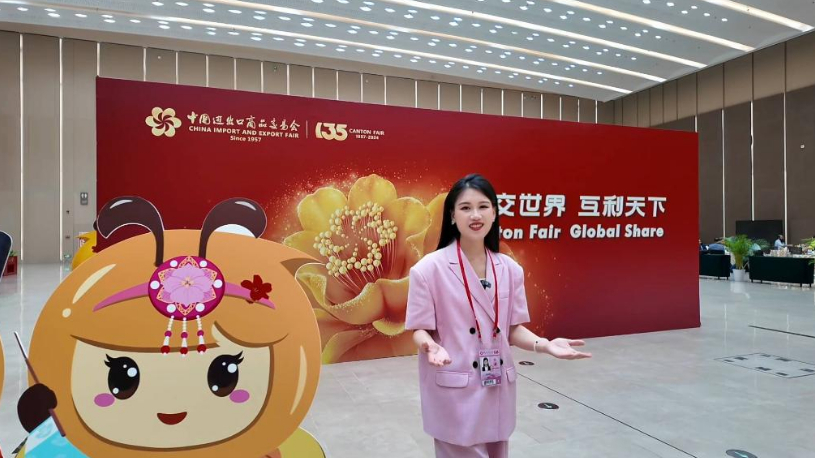By Xinhua writer Zheng Jingxia
BEIJING, May 1 (Xinhua) -- Standing in the bustling exhibition hall of the Beijing International Exhibition Center, I was overwhelmed by the crowds during the first day of the Beijing auto show.
"Today is exclusively for media. Just imagine how crowded it will be on public days," said a colleague bluntly. We couldn't agree more.
Official data soon confirmed what we felt. Thousands of media organizations and approximately 20,000 reporters attended the auto show on this day, surpassing the attendance of all other auto shows worldwide in history, according to the China Council for the Promotion of International Trade.
Reporters were spotted at nearly every car booth, wielding cameras or filming with cameramen. Some were engaged in live-streaming, busy showcasing the details of newly unveiled vehicle models or fielding questions from netizens.
Social media traffic naturally gravitates towards topics that pique public interest. At the Beijing auto show, one significant draw is the new electric vehicles (NEVs). It's fair to say that NEV fleets and manufacturers like BYD, Chery and Xiaomi garnered the most attention, not only from Chinese visitors but also from foreigners. The latter, typically in groups of three to four, were just as eager as their Chinese counterparts to experience new models at the launch events of Chinese-brand cars.
There were no indications of oversupply as representatives from automakers were fully occupied addressing customer inquiries or networking with business partners. Sadly, few of them had the opportunity to sit down for a talk with us reporters. More often than not, we had to settle for exchanging WeChat contacts and arranging possible interviews for later.
The sentiment for continued demand growth is strong, supported by industrial data and expert analysis. In the first half of April, the retail penetration rate of new energy passenger cars in China surpassed 50 percent for the first time, indicating that one out of every two cars sold is an NEV.
Ouyang Minggao, an expert on new energy power systems and a professor at Tsinghua University, has predicted that the NEV market share in China will be between 36 percent and 41 percent in 2024, up from 31 percent last year. Given that about 30 million NEVs were sold in China last year, the market share growth would be translated to an increase of as many as 3 million NEVs.
The NEV market share expansion will continue till 2026, when NEVs are expected to dominate the market with a share of over 50 percent, according to Ouyang.
Contrary to the narrative of excess capacity hyped up by some overseas politicians, the NEV sector and the broader green industry worldwide need a boost in production, especially considering the climate crisis and the pressing need to decarbonize the transport sector.
According to the International Energy Agency, both the global demand for NEVs and newly installed capacity of photovoltaic power will be about four times that of 2022 in 2030, surging to 45 million units and 820 gigawatts, respectively.
These predictions suggest that the global green industries are still in the early stages of development and need to ramp up capacity to meet the growing demand.
Given the demand for environmentally friendly products, it might be a more rational decision to address the root cause of global warming by cutting back on the excessive capacity of combustion engine-driven vehicles.
Companies are quick to adapt to market shifts. The impressive display of NEVs highlights the eagerness of carmakers to meet market demand, whether they are Chinese or foreign manufacturers.
At the show, the German auto giant Audi unveiled its first fully-electric model tailored for the Chinese market, while Mercedes-Benz also debuted its all-electric SUV.
The auto show is abuzz with excitement as companies, reporters and the public engage in lively interactions. It's evident that an irreversible and unstoppable change is underway in the global auto industry, with NEVs poised to dominate the roads in the future. ■











